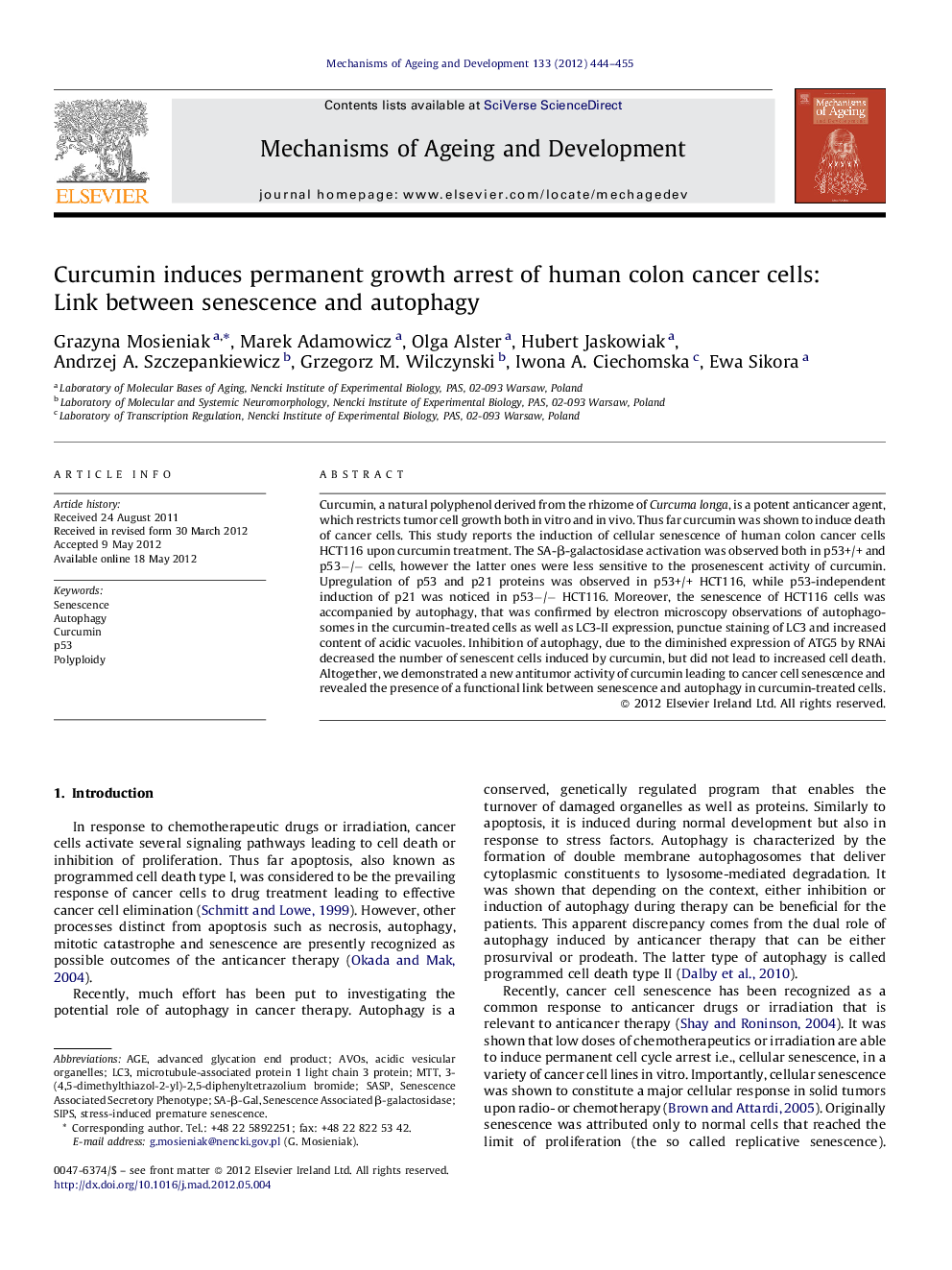| Article ID | Journal | Published Year | Pages | File Type |
|---|---|---|---|---|
| 1919326 | Mechanisms of Ageing and Development | 2012 | 12 Pages |
Curcumin, a natural polyphenol derived from the rhizome of Curcuma longa, is a potent anticancer agent, which restricts tumor cell growth both in vitro and in vivo. Thus far curcumin was shown to induce death of cancer cells. This study reports the induction of cellular senescence of human colon cancer cells HCT116 upon curcumin treatment. The SA-β-galactosidase activation was observed both in p53+/+ and p53−/− cells, however the latter ones were less sensitive to the prosenescent activity of curcumin. Upregulation of p53 and p21 proteins was observed in p53+/+ HCT116, while p53-independent induction of p21 was noticed in p53−/− HCT116. Moreover, the senescence of HCT116 cells was accompanied by autophagy, that was confirmed by electron microscopy observations of autophagosomes in the curcumin-treated cells as well as LC3-II expression, punctue staining of LC3 and increased content of acidic vacuoles. Inhibition of autophagy, due to the diminished expression of ATG5 by RNAi decreased the number of senescent cells induced by curcumin, but did not lead to increased cell death. Altogether, we demonstrated a new antitumor activity of curcumin leading to cancer cell senescence and revealed the presence of a functional link between senescence and autophagy in curcumin-treated cells.
► Curcumin induces senescence of both p53+/+ and p53−/− HCT116 cell line. ► Induction of senescence via curcumin treatment led to polyploidization of cancer cells. ► Curcumin-induced senescence is preceded and accompanied by autophagy. ► Inhibition of autophagy lead to decreased number of senescent cells.
